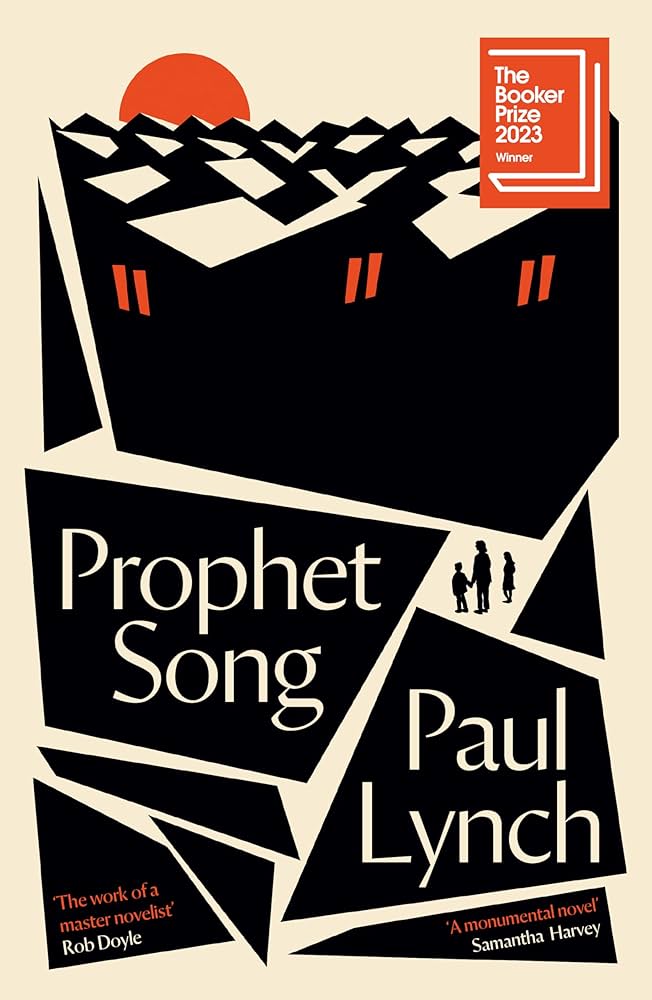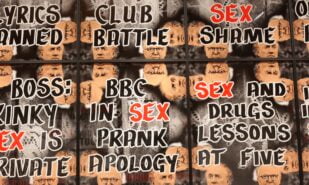On 26 November 2023, the winner of the 2023 Booker Prize was announced, with Prophet Song written by Irish writer Paul Lynch having been chosen from six shortlisted texts. The book was published by the independent publisher Oneworld. The books by this publisher have already won the Booker Prize, and for two years in a row. In 2015, the book by Jamaican writer Marlon James A Brief History of Seven Murders became the winner, and in 2016 it was The Sellout by the American writer Paul Beatty. Interestingly, these Bookers featured the first Jamaican and the first American ever to win the Booker Prize in the history of the award. Limerick-born Paul Lynch, 46, is an accomplished writer and the author of five novels, with the last three, including Prophet Song, having been published by Oneworld.
Prophet Song: the future that could be around the corner
| Author | |
|---|---|
| Category | Columnists, Culture, Lifestyle, Town |
| Date | January 5 2024 |
| Reading Time | 4 min. |
Prophet Song: the future that could be around the corner
It took Lynch four years to write this novel, he began it in 2019. At first, as Lynch recalls, he was writing “the wrong novel” for six months, and one day in the Covid year of 2020, he decided to start all over again. And thus the first pages of the future Prophet Song were written in the form as they are now, with almost no changes. Interestingly, it is not typical for the writer to create drafts, his work routine involves meticulously chosen 500 words a day, often accompanied by research, and therefore his initial drafts and the final text of the novel do not usually differ. It is quite paradoxical, because the text leaves a completely different impression, being reminiscent of Virginia Woolf (Lynch mentions her as one of his reference writers) and James Joyce, as the stream-of-consciousness technique is often used here. The novel is a stream of words with almost no punctuation, no direct speech graphically presented, no clear indication of who the next description refers to or who is being talked about, with rapid focus changes. Being plunged into the thick of the matter, we have to figure everything out, being helped on the way by abundant poetic metaphors, for instance the image of a huge worm that gets into people or eats them without their will or consent. The worm is fantasised by Bailey, the twelve-year-old son of the protagonist Eilish Stack, and the image quickly becomes one of the key metaphors in Prophet Song.
Undoubtedly, the Irish writer follows in the footsteps of all famous dystopian works, from Eugeny Zamyatin’s We to Margaret Atwood’s The Handmaid’s Tale and Orwell’s 1984. While in other dystopias we find ourselves in a well-established in its totalitarian monstrosity and relatively distant future (after all, Orwell wrote about the future in 1949), Paul Lynch deliberately sets himself the task of analyzing the path into hell that a modern Western city could go through. The writer indicates his wish to awaken the sense of “radical empathy” in his readers. For this purpose the war and the horrors of air raids, the divide into insiders and outsiders, street shootings and prisons now take place not somewhere in Syria, not in distant countries and distant future or long-gone past, but here and now.
The plot of the novel is simple enough – it is a fast-paced plunge into a nightmare. Eilish, an Irish mother of four, is left alone after her husband Larry is arrested for taking part in a teachers’ union march. The lonely woman begins to survive as the country rapidly descends into the chaos of a civil war, losing several of her children – the eldest, Mark, escapes state conscription and joins rebel forces, another son Bailey, after having been brought to the hospital with a splinter of a bomb in his head, is brutally tortured for reasons unknown. Her elderly father Simon, who suffers from progressive dementia, is smuggled overseas thanks to the help of the Canada-based sister Áine, and while Eilish realises that she must flee too, it is now almost impossible to do so. The dizzy feeling of a rapid descent into hell is created by the text, where the stream-of-consciousness has inserted dreams and conversations with loved ones (her husband and eldest son) and where the heroine in her wish to escape reality is confronted by a constant need of urgent action. The author makes a complex blend of modernist writing with a contemporary apocalyptic film script: the novel’s images are vivid, visually well-presented, often not realistic, but phantasmagorically eschatological.
And here lie the strong and the weak sides of the book at once. On the one hand, its main image of the prophet song is powerful: it does not matter at what historical time the catastrophe occurs, as people come and go, they become dead leaves on the path of mankind to the future. If a tragedy happens in our lives, the world does not end, it moves steadily forward. But in creating this image, Lynch’s depiction of the horrors of war, totalitarian society and civil war is not very realistic or convincing. The modern reader has already read so much about major conflicts, bombardments, hostages and refugees, internet and power cuts that some of the details of Prophet Song seem unconvincing and written in a literary, colourful, but very unrealistic pattern.
Strangely enough there are no bomb shelters, no emergency services, no volunteers, no normal logistics for the removal of refugees and civilians, the internet is constantly cut off, but mobiles and laptops are used, bombs fall on houses but no one is transported anywhere, a boy is taken from a hospital and tortured for no reasons (it’s too scary but not convincing), the protagonist runs across the city zones under shelling but does it all over again, money is handed over in huge bundles of banknotes, while there are no cards or accounts. As the the anguish and fear is deliberately built up with no real dynamics but just a constant outrage of our senses, one gets tired and begins to quietly disengage from the text. It is written by an author who has not yet lived through a real war, a true fear for the lives of his loved ones and who observes the tragedies of the world from the outside vantage point. And yet, this text is certainly worth reading, if only to experience how consciousness is destroyed, how the traps and excuses of “everything will be fine” cease to work. We’ve all been through it, are going through it, or will go through it at some point sooner or later. It’s time to prepare for these times through reading the 2023 Booker Prize winner, Paul Lynch’s Prophet Song.





